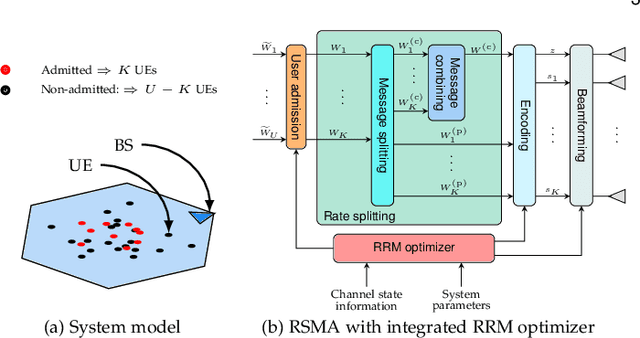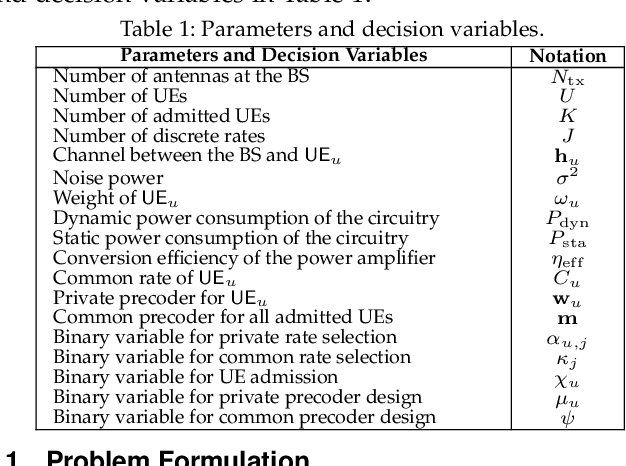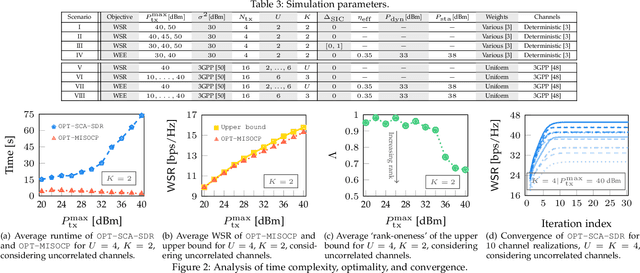A. Krishnamoorthy
Radio Resource Management Design for RSMA: Optimization of Beamforming, User Admission, and Discrete/Continuous Rates with Imperfect SIC
Apr 30, 2024



Abstract:This paper investigates the radio resource management (RRM) design for multiuser rate-splitting multiple access (RSMA), accounting for various characteristics of practical wireless systems, such as the use of discrete rates, the inability to serve all users, and the imperfect successive interference cancellation (SIC). Specifically, failure to consider these characteristics in RRM design may lead to inefficient use of radio resources. Therefore, we formulate the RRM of RSMA as optimization problems to maximize respectively the weighted sum rate (WSR) and weighted energy efficiency (WEE), and jointly optimize the beamforming, user admission, discrete/continuous rates, accounting for imperfect SIC, which result in nonconvex mixed-integer nonlinear programs that are challenging to solve. Despite the difficulty of the optimization problems, we develop algorithms that can find high-quality solutions. We show via simulations that carefully accounting for the aforementioned characteristics, can lead to significant gains. Precisely, by considering that transmission rates are discrete, the transmit power can be utilized more intelligently, allocating just enough power to guarantee a given discrete rate. Additionally, we reveal that user admission plays a crucial role in RSMA, enabling additional gains compared to random admission by facilitating the servicing of selected users with mutually beneficial channel characteristics. Furthermore, provisioning for possibly imperfect SIC makes RSMA more robust and reliable.
 Add to Chrome
Add to Chrome Add to Firefox
Add to Firefox Add to Edge
Add to Edge